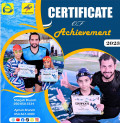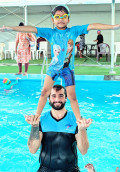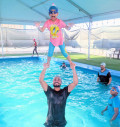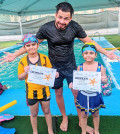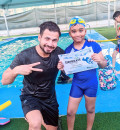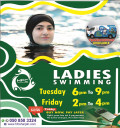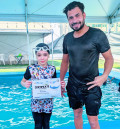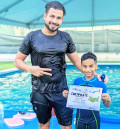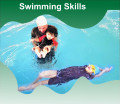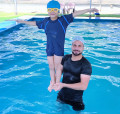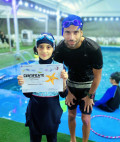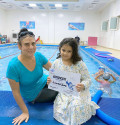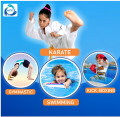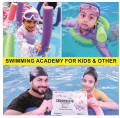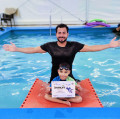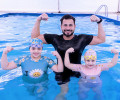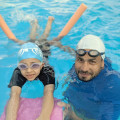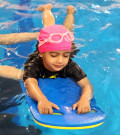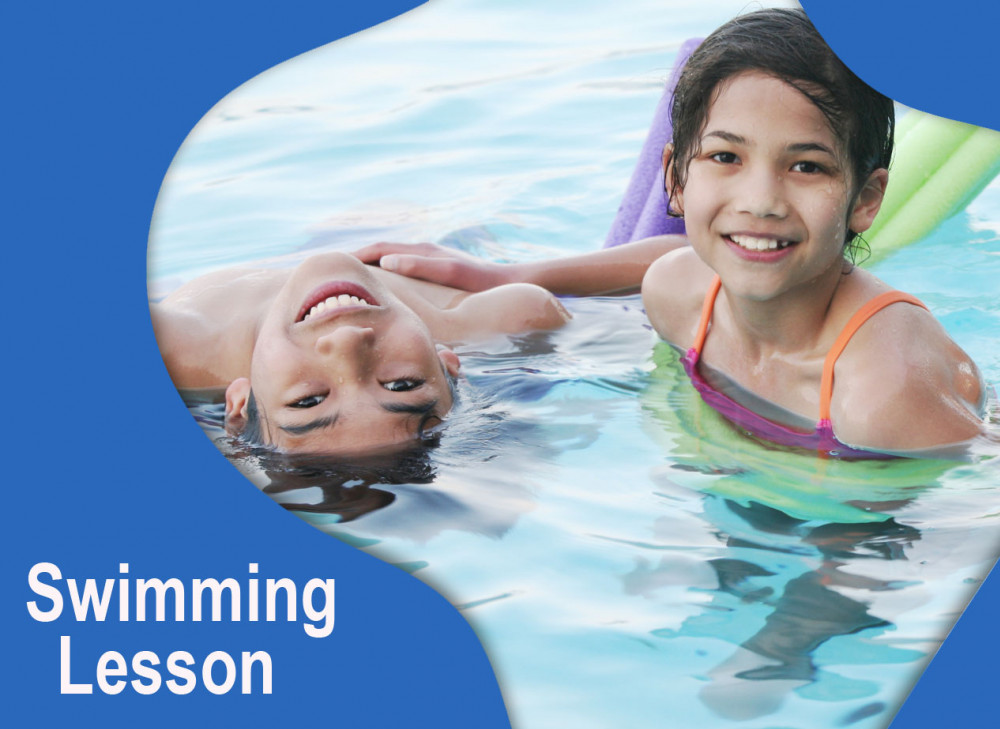
Swimming Lesson for Kids: A Dive into Confidence and Skill Mastery
2023-11-17 - swimmingSwimming is not just a recreational activity; it's a life
skill that opens doors to confidence, safety, and a lifetime of fitness. In
this article, we'll explore the journey of swimming lessons for kids, from
beginner to the last level, encompassing various aspects that contribute to a
well-rounded swimming experience.
I. Introduction
A. Importance of Swimming for Kids
Swimming goes beyond just splashing in the pool; it builds
crucial life skills such as discipline, focus, and physical fitness. For kids,
mastering swimming provides a sense of accomplishment and confidence.
B. Building Confidence and Safety
Enrolling children in swimming lessons lays the foundation
for water safety, instilling confidence that can positively impact various
aspects of their lives.
II. Choosing the Right Swim Program
A. Age-Appropriate Lessons
Different age groups have distinct learning needs. A
tailored approach ensures that kids receive lessons suitable for their
developmental stage.
B. Qualified Instructors
Competent instructors play a pivotal role in a child's
swimming journey. Certification, experience, and a nurturing approach are key
factors to consider.
C. Small Class Sizes
Smaller classes facilitate personalized attention, allowing
instructors to address individual needs and track each child's progress
effectively.
III. Beginner Level Lessons
A. Water Familiarization
For beginners, getting comfortable in the water is the first
step. Lessons focus on building a positive relationship with the aquatic
environment.
B. Floating Techniques
Teaching kids to float is foundational. It not only boosts
confidence but also forms the basis for more advanced swimming skills.
C. Basic Stroke Introduction
Introduction to basic strokes like freestyle and backstroke
begins at this stage, laying the groundwork for future proficiency.
IV. Intermediate Level Lessons
A. Advanced Stroke Techniques
Building on the basics, intermediate lessons delve into
refining stroke techniques, ensuring kids develop a strong and efficient
swimming style.
B. Water Safety Skills
Intermediate lessons emphasize essential water safety
skills, equipping kids to handle unexpected situations and promoting
responsible behavior around water bodies.
C. Increasing Swim Stamina
As kids progress, lessons focus on enhancing endurance and stamina,
preparing them for more extended periods in the water.
V. Advanced Level Lessons
A. Competitive Swimming Techniques
For those inclined towards competition, advanced lessons
cover techniques crucial for competitive swimming, including starts, turns, and
pacing.
B. Lifesaving Skills
The advanced stage introduces lifesaving skills, imparting
knowledge that can make a significant difference in emergency situations.
C. Endurance Building
Endurance becomes a key focus, ensuring that kids can swim
longer distances with ease, promoting a lifelong love for the sport.
VI. Addressing Challenges
A. Overcoming Fear of Water
Some children may face fear initially. Techniques for
overcoming this fear are integrated into lessons, fostering a positive and
supportive learning environment.
B. Dealing with Distractions
Minimizing distractions is crucial for effective learning.
Strategies for maintaining focus are incorporated, ensuring maximum benefit
from each lesson.
C. Tailoring Lessons for Individual Needs
Recognizing and addressing individual learning styles and
needs ensures that every child progresses at their own pace, fostering a sense
of accomplishment.
VII. The Role of Parents
A. Encouragement and Support
Parents play a vital role in a child's swimming journey.
Encouragement and support at home reinforce the lessons learned in the pool.
B. Reinforcing Learning outside the Pool
Practicing basic skills outside the pool, like blowing
bubbles or floating in the bathtub, reinforces the lessons and accelerates
progress.
C. Recognizing Achievements
Celebrating small achievements creates a positive
association with swimming, motivating kids to persevere through challenges.
VIII. Fun and Games in Lessons
A. Incorporating Play for Younger Children
For younger kids, lessons incorporate games and play, making
the learning process enjoyable and fostering a love for swimming.
B. Competitive Drills for Older Kids
Older kids benefit from competitive drills, adding an
element of challenge that keeps them engaged and motivated.
C. Keeping Lessons Engaging
Incorporating variety and creativity into lessons ensures
that each session remains interesting, preventing monotony and boredom.
IX. Preparing for Swim Competitions
A. Balancing Fun and Competition
For kids interested in competitive swimming, finding the
right balance between fun and competition is essential for long-term enjoyment
of the sport.
B. Setting Realistic Goals
Establishing achievable goals helps kids stay motivated,
fostering a sense of accomplishment as they progress through their swimming
journey.







.jpg)




















